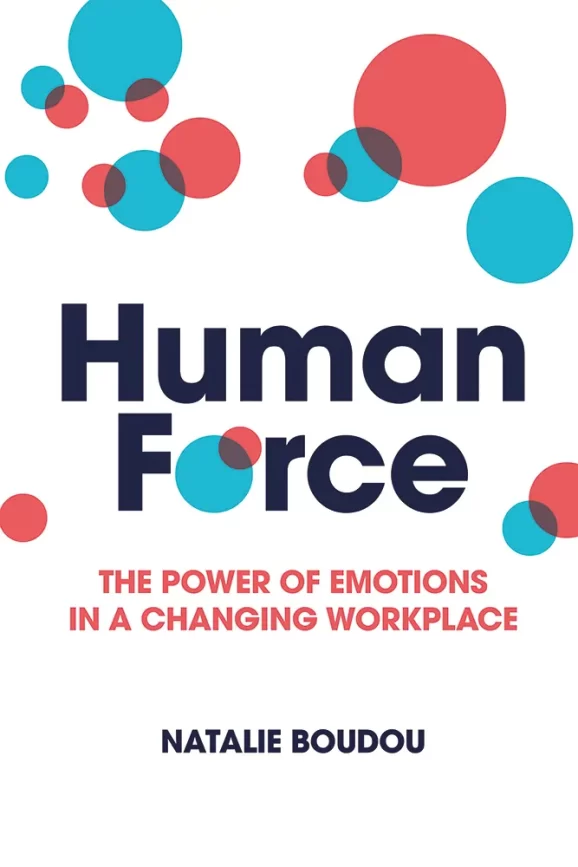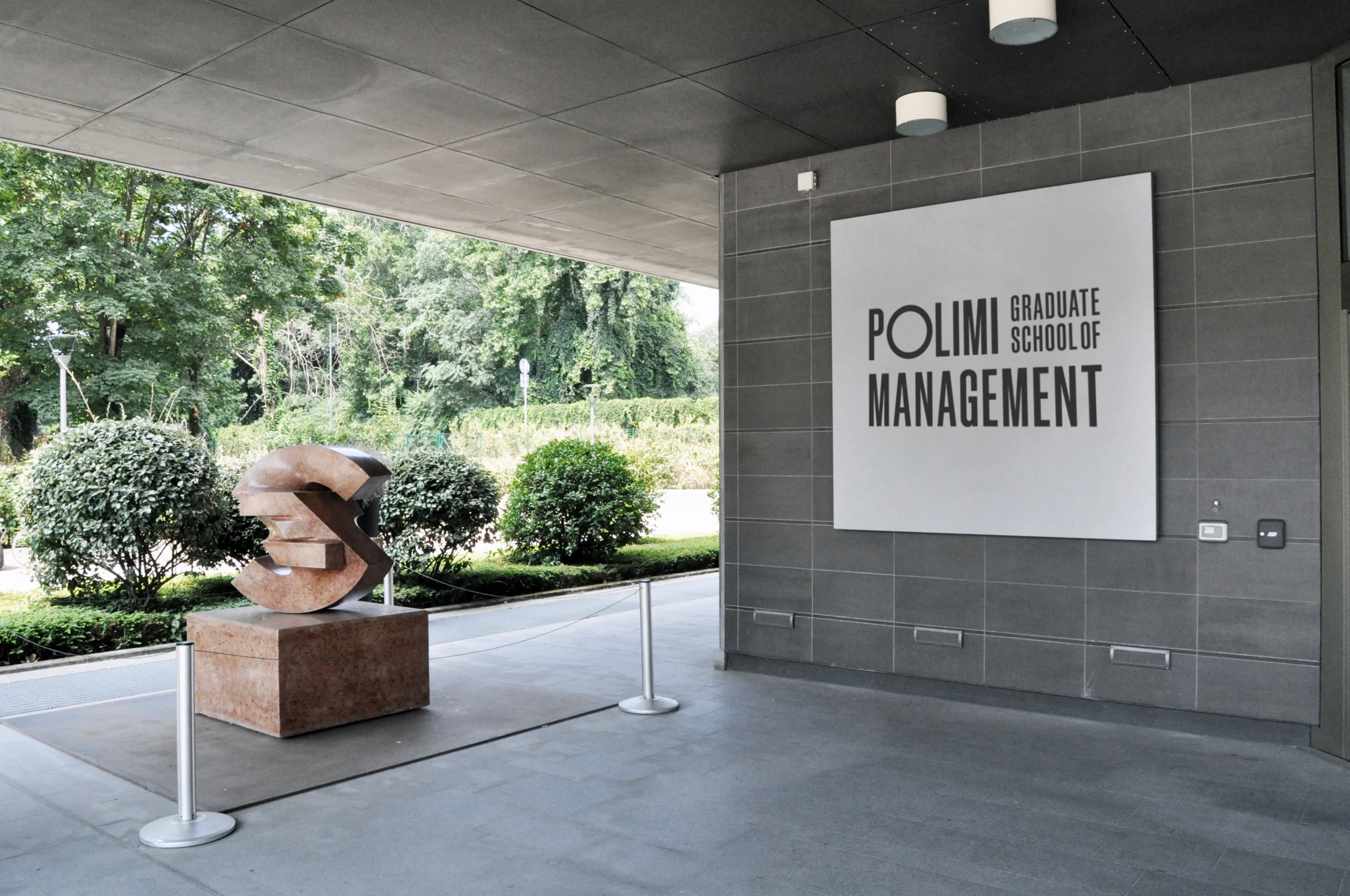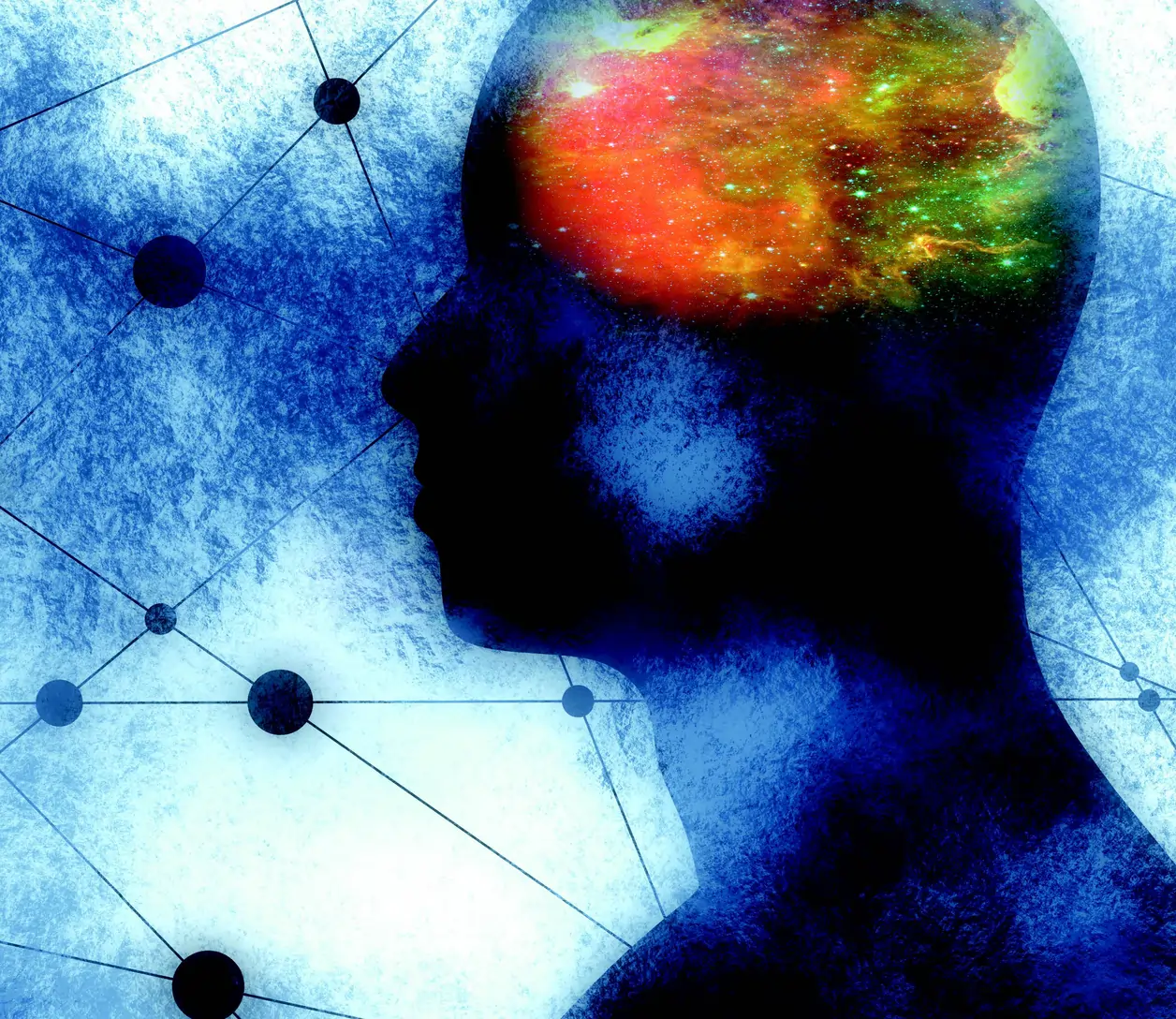How EQ can give us the edge over AI

John E. Kaye
- Published
- Executive Education, Home

By harnessing our emotional intelligence we can trump AI in so many areas – but first we must be honest with ourselves, says executive coach Natalie Boudou
Artificial intelligence is causing alarm in the world of work – and not without good reason. High-profile tech moguls have started to paint a worryingly dystopian picture. The “godfather” of AI Geoffrey Hinton recently quit Google, voicing concerns about the development of ChatGPT and deep learning, among other things. Apple co-founder Steve Wozniak has also warned of the growing dangers of AI in relation to deep fake and wide spread misinformation. But what does all of this mean for us? How will the machines redefine the added value we bring to the workplace?
The signs are not good. One of the most recent developments in AI is artificial EQ, or “emotion AI”. This remarkable sounding tech claims machines can detect human emotions in exactly the same way as you or I. Emotion AI has already been used in the interview process, weighing up candidates versus existing top performers on the team based on micro expressions, tone of voice and other variables. Other programs are being used to judge if we are distracted while we work, or about to make a risky move. Billions of dollars are being poured into emotion AI initiatives to find out more about our thoughts and help make us better workers.
Right now, there is a lot of discussion about whether it is even possible for AI to properly gauge human emotions. But emotions are complicated. They develop and change according to our cultures and lived experiences. This one-size-fits-all approach to detection could lead to discrimination. Unfair outcomes will be difficult to challenge, because “machines don’t lie”.
There is one thing AI can never do and that is be human. It can’t leverage emotions as we can. Even if AI becomes able to recognise and mimic our emotions, it will never be able to achieve the same warmth, empathy and compassion. Skills such as motivating, understanding and interacting with each other will still be done better by humans, and these skills are based on emotional intelligence (EQ). In this rapidly changing world, human emotions and a developed EQ will give leaders the edge when helping their teams to navigate change and increase their resilience in the face of stress and uncertainty.
Leaders with a high EQ understand their people well, can perceive what they are feeling and act upon it. These are the essential leadership skills that got us through the pandemic and will support us as we navigate future changes. They will set us apart from technology and AI, which has not yet replaced our human feelings and emotions.
How to assess your EQ
Developing EQ involves a multistage strategy. As a leader, you need to take a good, honest look at your own skills and work out where you currently are on the scale of high, low or unexpressed EQ to properly understand your leadership style. Which skill-set do you believe is the more important to develop: relationships or results?
Ask yourself the following questions. Look upon this exercise as having an honest chat with yourself:
- What’s your approach to expressing emotions?
- What feelings are you comfortable expressing?
- Are you more comfortable with certain feelings than others?
- Which is the emotion you are most uncomfortable with?
- When something feels uncomfortable, do you bottle your emotions or brood? Why?
- Do you find it easier to express your emotions at home or at work? Why?
- What’s the most common reaction you get when you express emotions?

EQ and complex decision making
Decision making is an integral part of leadership. Our ability to make the right choices has an impact on our careers, as well as the success of our teams. Thus, it is important that we are effective decision makers. Get it right and we can save time and resources, gain the respect of others, improve productivity and prevent mistakes. Leaders must fully understand the process so that we can maintain and improve our decision-making skills.
Our emotions play a vital role when it comes to making decisions. Lots of people talk about “going with my gut” or using their intuition. They take an action because it “just feels right”. This is a perfect example of emotion determining our actions. If we are feeling positive, confident and happy, we’ll most likely reach a conclusion about something in one way. We might come to a completely different conclusion if we’re feeling angry, sad or unhappy.
But most people don’t allow themselves time to properly assess their feelings, which inhibits effective decision making. Follow this exercise to tune into how you experience different emotions:
First, close your eyes and take a few deep breaths. Notice how your feet touch the floor and your arms, legs and back feel as they come into contact with your chair. Pay attention to your breaths and how your chest rises and falls as you breathe.
Now, think back to a recent time when you experienced an unpleasant emotion, such as anger. Relive that emotion in your mind and take a moment to notice where you’re feeling it. Is it in your chest, in your stomach or in another part of your body? Allow yourself to magnify that feeling to the point where it might feel quite unpleasant.
Finally, memorise that sensation, and then switch your thoughts to something nice and dwell on it for a while so the unpleasant feelings completely disappear.
EQ and creative problem solving
Emotions influence how we learn because they are inherently linked to cognitive skills such as executive function, critical thinking and problem solving. Emotions such as joy, excitement and passion will motivate us to learn. Positive emotional states can help us to broaden our perspective, see alternatives, persist through challenges and respond positively to criticism or failure.
In today’s uncertain world, creativity is ranked as a vital skill because it gives a business the edge in addressing challenges and opportunities. Indeed, a workplace survey focusing on 50,000 different skills identified creativity as the most important, essential to compete in the modern marketplace, ranking it above management, integrity, and vision. Unfortunately, creativity is something that a lot of companies struggle with. Emotions play a key role here because energy-sapping emotions such as anger and fear can inhibit creativity and creative problem solving.
A key technique to start paying attention to your emotions to unlock creativity and enhance your EQ is mindfulness. Daniel Goleman and neuroscientist Richard Davidson identified three proven benefits of mindfulness. It promotes focus and a clarity of thought, a sense of calm open-mindedness and improved cognitive ability.
You can achieve amazing results by practising acts of mindfulness for a few minutes at a time over the course of a day, even if it’s just noticing the sensation of the water in your morning shower, or really absorbing the taste of your coffee, rather than just gulping it down thinking about your next meeting.
In order for leaders to develop their EQ, they must learn to work with their emotions, rather than suppressing them. That means being willing to welcome all emotions, pleasant and unpleasant, accepting them as they rise, understanding them, and in turn, being able to take action to move forward.


About the Author
Natalie Boudou is an executive coach, the CEO of international consultancy HumanForce and author of ‘HumanForce: The Power of Emotions in a Changing Workplace’.
RECENT ARTICLES
-
 Hannu Tihinen on strategy, leadership, and the value of an EMBA
Hannu Tihinen on strategy, leadership, and the value of an EMBA -
 European MBAs adapt to AI as Aalto overhauls executive education
European MBAs adapt to AI as Aalto overhauls executive education -
 From dialogue to action: how emba X prepares leaders for a new era of responsible innovation
From dialogue to action: how emba X prepares leaders for a new era of responsible innovation -
 How Europe can learn faster: turning AI into safer, smarter adult training
How Europe can learn faster: turning AI into safer, smarter adult training -
 Aalto EE launches Aalto Tech EMBA to equip executives for digital transformation
Aalto EE launches Aalto Tech EMBA to equip executives for digital transformation -
 Supply chains are being remade. Leadership must be too
Supply chains are being remade. Leadership must be too -
 Why the real barrier to AI success sits in the boardroom
Why the real barrier to AI success sits in the boardroom -
 ETH Zurich and the University of St.Gallen redefine executive education with emba X, a new model of responsible leadership
ETH Zurich and the University of St.Gallen redefine executive education with emba X, a new model of responsible leadership -
 Why leadership is the strongest defence in South Africa’s schools
Why leadership is the strongest defence in South Africa’s schools -
 Porto Business School launches executive programme on AI strategy
Porto Business School launches executive programme on AI strategy -
 POLIMI Graduate School of Management strengthens global reputation in MBA and master’s rankings
POLIMI Graduate School of Management strengthens global reputation in MBA and master’s rankings -
 Trinity Business School strengthens standing in global MBA rankings
Trinity Business School strengthens standing in global MBA rankings -
 Meet the class of 2025… and their children. Why mid-life university learning is on the rise
Meet the class of 2025… and their children. Why mid-life university learning is on the rise -
 University of Michigan launches executive programme for chief data and AI officers
University of Michigan launches executive programme for chief data and AI officers -
 International education: A vision for global citizens
International education: A vision for global citizens -
 How to create lasting social change? Build a community
How to create lasting social change? Build a community -
 Tomorrow’s world needs Dyslexic Thinking
Tomorrow’s world needs Dyslexic Thinking -
 Why family therapy is the best investment you can ever make
Why family therapy is the best investment you can ever make -
 How EQ can give us the edge over AI
How EQ can give us the edge over AI -
 A true root and branch approach
A true root and branch approach -
 It's fine to say you're not ok
It's fine to say you're not ok -
 Are you willing to change with your organisation?
Are you willing to change with your organisation? -
 Emerging markets: Online learning for women unlocks economic potential
Emerging markets: Online learning for women unlocks economic potential -
 A programme of urgent importance
A programme of urgent importance -
 Why progress is not parity
Why progress is not parity


























